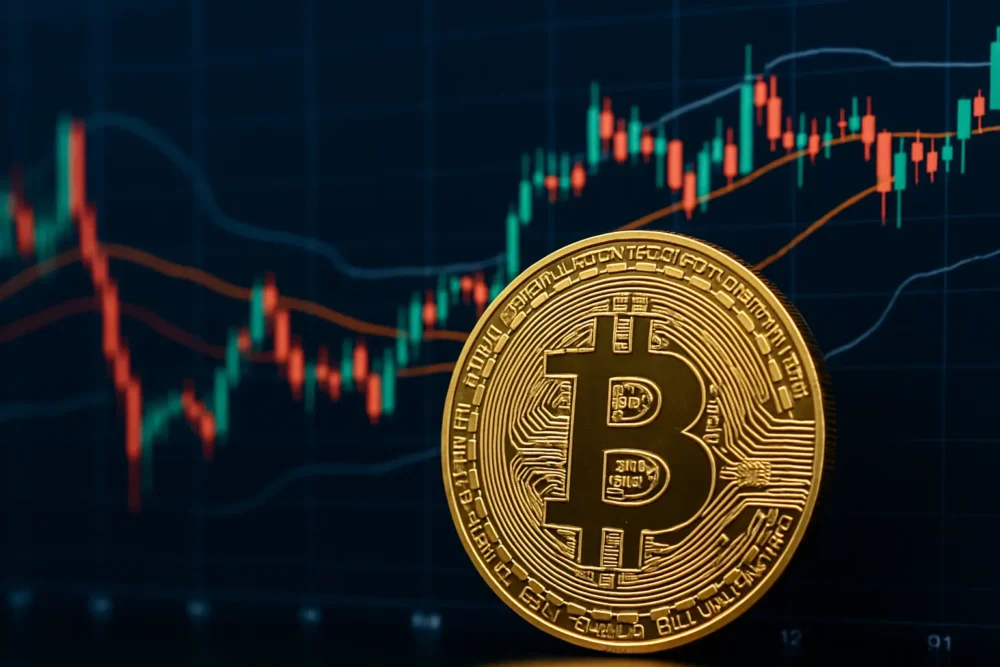Seychelles-based cryptocurrency exchange, OKX, has officially launched its services in the United States, opening a regional headquarters in San Jose, California.
This marks a major step in the company’s renewed efforts to establish a strong presence in the US crypto market.
To lead this expansion, OKX has appointed Roshan Robert as the Chief Executive Officer for its US operations. Robert brings with him a deep background in both traditional finance and crypto.
He was a founding team member at the crypto prime brokerage Hidden Road, which was recently acquired by Ripple in a $1.25 billion deal. Before joining OKX, he served as an executive at the institutional crypto lending platform CLST and held senior positions at Barclays.
In a formal statement, Robert expressed his enthusiasm for the launch. “Today, I’m thrilled to announce the launch of OKX’s centralised crypto exchange and OKX Wallet in the United States, alongside the establishment of our regional headquarters in San Jose, California”, he said.
The exchange is beginning its rollout in phases. It will start by migrating users from OKCoin, a sister company of OKX that previously operated in the US, to the newly launched OKX platform.
According to the company, this transition will offer users a more advanced trading experience, deeper liquidity, and lower fees. OKX will then gradually onboard new users, aiming for a broader, nationwide launch later in 2025. Robert described this approach as part of a “commitment to responsible growth”.
Legal settlement and push toward regulatory compliance
OKX’s return to the US comes just two months after a major legal settlement with the US Department of Justice. In February, a subsidiary of OKX pleaded guilty to running an unlicensed money-transmitting business in the United States. This was in violation of US anti-money laundering regulations.
The DOJ stated that OKX had allowed US-based users to access its platform from around 2018 until early 2024, despite having a formal policy that said otherwise.
During that period, the exchange processed over $1 trillion in cryptocurrency transactions from users in the United States. The DOJ also alleged that OKX actively sought out American customers, including in the Southern District of New York.
As part of the settlement, OKX agreed to pay more than $504 million. This included $84 million in penalties and an additional $421 million to forfeit the fees it had earned from US-based customers.
The company accepted responsibility for its actions and announced plans to address the issues that led to the violations.
In response to the settlement, OKX brought in former New York Governor, Andrew Cuomo, as an advisor during the investigation and later committed to hiring a compliance consultant to help strengthen its regulatory practices.
OKX CEO, Star Xu, expressed the company’s future ambitions, stating, “Our vision is to make OKX the gold standard of global compliance at scale across different markets and their respective regulatory bodies”.
Robert also stressed the company’s renewed focus on legal and ethical operations. He said that OKX has built a detailed, risk-based global compliance programme. This includes rigorous customer background checks, a full know-your-customer (KYC) process, and systems for rating user risk levels.
In addition, the platform has implemented advanced tools for fraud detection and anti-money laundering (AML) monitoring.
OKX has also set up geo-blocking to restrict access from regions where its services are not allowed, and it runs continuous market surveillance to ensure the platform operates fairly and safely. “These are all part of our commitment to a secure, compliant trading environment”, Robert said.
Wallet launch and full platform features for US users
As part of its US relaunch, OKX is introducing a range of services tailored for both experienced traders and those new to cryptocurrency.
The centrepiece of this offering is a fully functional centralised trading platform and the OKX Wallet, both of which are now available to US users.
Through the exchange, American customers will be able to buy, sell, and convert major cryptocurrencies, including Bitcoin ($BTC), Ethereum ($ETH), Tether ($USDT), and USD Coin ($USDC).
OKX has also introduced seamless connections with US bank accounts, making it easier for users to move money between traditional finance and digital assets.
The OKX Wallet is designed to give users access to a wide range of blockchain networks. It supports more than 130 different blockchains and allows customers to swap tokens directly within the wallet.
It also enables the bridging of assets between chains, allowing users to move their holdings across different networks easily.
Beyond token trading, the wallet includes a decentralised exchange (DEX) aggregator. This gives users access to over 10 million tokens available on major networks like Ethereum, Solana, and Base.
To enhance user experience, the wallet features an artificial intelligence-based Web3 navigation tool. This AI tool helps users identify popular or trending tokens by simplifying the research process, making it easier to spot market opportunities.
Robert explained that OKX is taking a careful approach to its rollout in the United States. “We’re beginning with a phased rollout for new customers to ensure a smooth and secure onboarding process, with a broader nationwide launch planned later this year”, he said.
OKX has also committed to maintaining transparency regarding its assets. The company releases monthly proof-of-reserves reports, which are verified by cybersecurity firm Hacken.
These reports help to ensure that the platform holds enough assets to match user balances, providing an extra layer of trust and security. At the time of publication, Hacken had not issued a comment.
A warmer regulatory climate and industry momentum
The decision to reenter the US market appears to be influenced in part by a shift in the political climate. Under President Donald Trump’s administration, the regulatory environment for cryptocurrency companies has grown more welcoming.
The administration has worked to reduce barriers and create clearer rules for digital asset firms operating in the country.
In a recent development, the US Senate approved Trump’s nominee, Paul Atkins, to lead the Securities and Exchange Commission (SEC). Atkins has promised to work on building a more predictable and supportive regulatory framework for the crypto industry.
As the US becomes more open to digital assets, other companies in the sector are also looking to enter or re-enter the market. CoinList, a token launch platform, announced its return to the US earlier this month after a five-year absence.
At the same time, reports suggest that Binance, the world’s largest crypto exchange, is also exploring a possible return to the American market.
OKX’s leadership sees this moment as a key opportunity. The company stated that the US is an essential part of its broader global strategy and that it aims to stay ahead of regulatory changes.
In its launch announcement, the company explained, “American customers can buy, sell, and convert top cryptocurrencies like Bitcoin, Ethereum, USDT, and USDC, while also connecting traditional finance with crypto through seamless local bank account integrations”.
“As regulations evolve, OKX is working closely with US regulators and policymakers to ensure we operate transparently and compliantly”, added Robert.
With a new leadership team, a strong compliance foundation, and a suite of services aimed at both beginners and professionals, OKX is positioning itself for long-term success in the US market.


